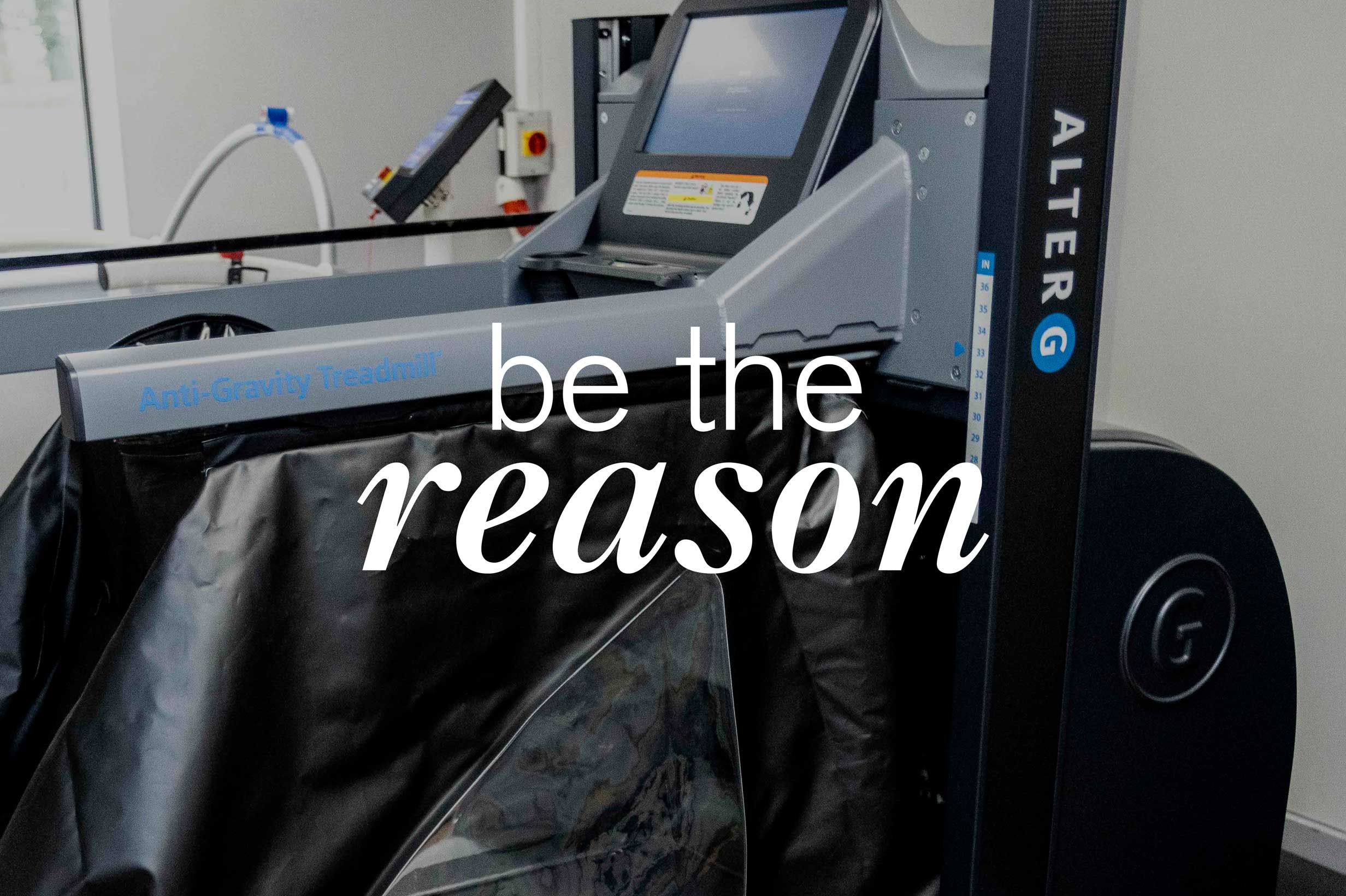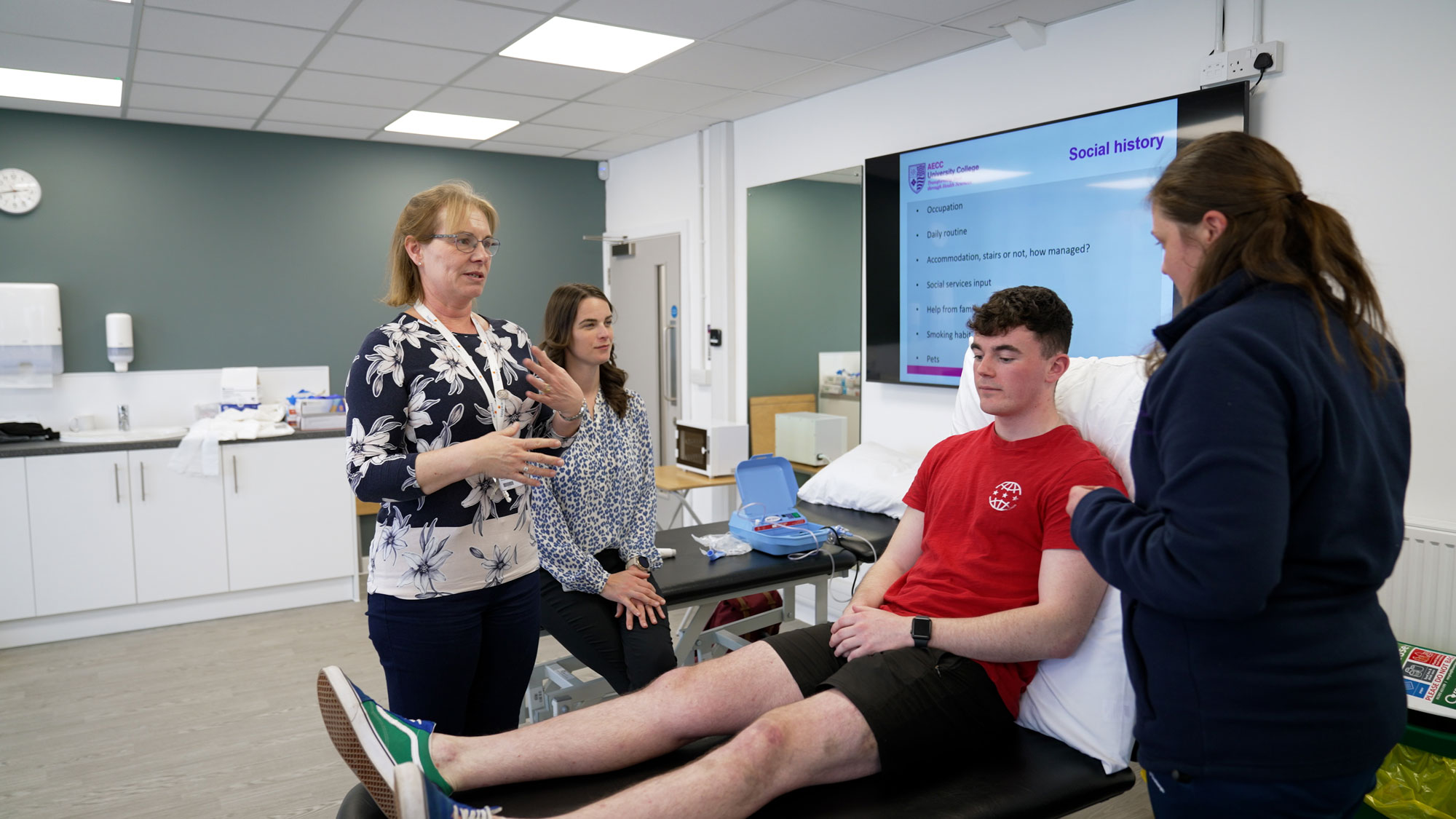Discover a career in Physiotherapy
Physiotherapists are needed in many different areas such as, paediatrics, orthopaedics, care of the elderly, neurological, respiratory, intensive care, chronic and acute respiratory to name a few.

In April 2018, Julie Williams’ life changed when she had a brain haemorrhage in the middle of the night. She was rushed to hospital by ambulance and needed six hours of surgery to control the bleeding and save her life.
Julie went from being a very fit person, playing tennis every day, to being unable to walk or even stand up.
Julie was in Southampton Hospital for three months and in and out of Intensive Care due to further complications. She was unable to speak and unable to move the right side of her body at all.
Julie’s speech gradually improved with speech therapy and she was moved to a Neurological Rehabilitation Centre. At this point she still had to be hoisted in and out of bed and the physiotherapists were teaching her basic things such as getting dressed and getting into a car from her wheelchair using a slide board. She finally returned home in September 2018 confined to a wheelchair and downstairs living.
Katie Bright, Clinical Lead for Community, Long-term Conditions and Neurology at the Health Sciences University’s Integrated Rehabilitation Centre, has been working with Julie for two years to help continue her recovery.
“I was walking with a rollator when I met Katie, even at home. Dyspraxia is my biggest problem now, because it distorts everything in my life. I’m always planning my movements – how I’m going to get from here to there. It’s exhausting and sometimes fatigue is another problem.
“Katie has helped me to walk without aids, to start working towards jogging again, and to start playing tennis – which is my big passion.
“I loved playing tennis and I was a very active person doing a lot of cycling and walking. I’m getting better and I’m working hard.
“What I’ve learned from Katie is to never give up. Getting the right help and seeing a Physiotherapist that you like and trust makes all the difference. Katie is so good that I want to please her and improve for her. She understands what I’m doing and we’re working on my goals together.
“You’ve got to get on with your Physiotherapist. It’s very important. My biggest advice for someone recovering from something like this is to trust somebody to help you. And to ask for help.”
“One of the things that we’ve worked on is going up and down steps; we’ve practised and practised,” explains Katie.
“Sometimes Julie would get to a step and get stuck. The only way to overcome issues like this is to keep working at them. That’s been the main focus of rehabilitation for Julie: practising things that are difficult over and over again.
“It was fantastic when Julie cracked the stairs! She has also made brilliant progress with walking. She progressed from walking with a rollator to walking with poles, and then to walking unaided. Julie has also progressed to going out by herself, whereas she initially always needed to have someone with her, this has significantly increased her independence
“Julie’s tennis coach and I have also been working on getting her back to playing tennis. The sport is such a passion for her and getting back to it has been one of her main goals. She is making steady progress. We are also working up to jogging, as Julie used to like running.
“That’s one of the reasons we’re trying a special piece of equipment at HSU, called the Alter-G in Clinic. It allows you to reduce the weight that a person is putting through their body and this reduces the risk of injury.
“Julie is really inspiring. Four years after the haemorrhage, she is still setting herself goals and improving. She keeps steadily making progress and it’s brilliant to see.”
“Katie has really helped Julie to do lots of things that she didn’t feel she could do. For example, Julie was very nervous to try swimming again and didn’t want to get into the water. Katie came along and before I knew it, Julie was in the pool!
“Julie is so determined and she has worked so hard on her recovery.”

Physiotherapists are needed in many different areas such as, paediatrics, orthopaedics, care of the elderly, neurological, respiratory, intensive care, chronic and acute respiratory to name a few.
Our patient stories demonstrate the impact that our students and clinicians in our on-site clinics can have on the lives of patients.
Health Sciences University
Bournemouth Campus
Parkwood Road
Bournemouth
BH5 2DF
Health Sciences University
London Campus
275 Borough High Street,
London
SE1 1JE